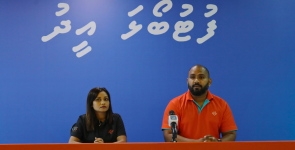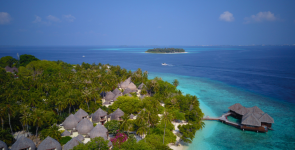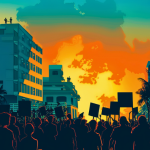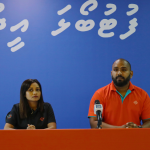In the serene yet dynamic landscape of small island communities like the Maldives, the corporate world is not immune to the global phenomenon of burnout culture. This phenomenon presents unique challenges and complexities in such environments. Insights from recent research shed light on the impact of this issue and suggest potential strategies for addressing and mitigating burnout in these distinct locales.
Small island communities often face unique challenges due to their geographical and economic conditions. In the Maldives, a nation known for its idyllic islands and robust tourism sector, the corporate environment is characterised by close-knit professional networks and a reliance on a limited range of industries. These factors create a distinct backdrop for understanding burnout in the workplace.
One significant aspect in this context is the enhanced pressure of the psychological contract between employers and employees. In smaller communities like the Maldives, this contract often bears more weight due to closer social connections and higher visibility within the community, leading to increased expectations and pressures. Such dynamics can contribute significantly to burnout, as employees feel a heightened sense of obligation and scrutiny.
Moreover, the limited scale of island economies often results in fewer resources and opportunities for career advancement. This limitation can lead to increased job stress and a sense of stagnation, both known contributors to burnout. The situation is further compounded by the reliance on specific industries, such as tourism in the Maldives, which can intensify job pressures due to seasonal fluctuations and economic vulnerabilities. Such factors collectively contribute to a heightened risk of job insecurity, a known risk factor for burnout.
Addressing burnout in such settings requires a multifaceted approach. Promoting a healthy work-life balance is crucial. This can be achieved through supportive management and policies that recognize the importance of personal time, particularly in close-knit communities. Managerial support for family issues and personal well-being can be effective in reducing burnout.
Additionally, fostering a democratic and egalitarian management style can help mitigate the effects of burnout. Such a style can help alleviate the pressures of the enhanced psychological contract by promoting open communication, employee empowerment, and a sense of shared responsibility and recognition.
Burnout in the corporate world of small island communities like the Maldives presents unique challenges due to the distinct economic and social dynamics of these settings. Addressing this issue requires a deep understanding of these unique factors and a tailored approach that includes promoting work-life balance, supportive management practices, and an egalitarian work culture. By adopting these strategies, small island communities can effectively combat the adverse effects of burnout, ensuring a healthier and more productive workforce.



















